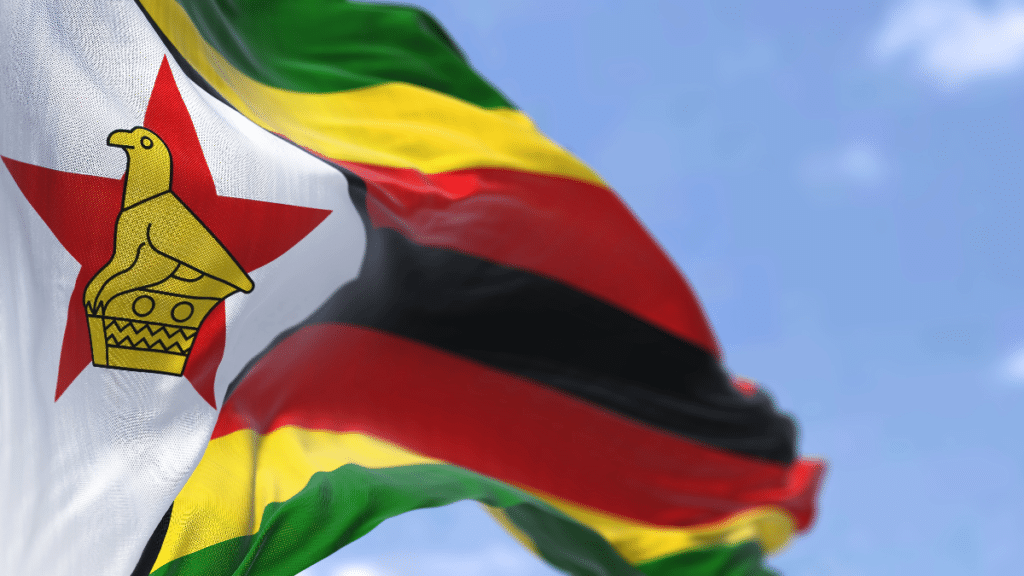Democratic Elections in Zimbabwe Require An Open, Accessible Internet
Alexia Skok, Felicia Anthonio / Aug 25, 2023Felicia Anthonio is #KeepItOn Campaign Manager and Alexia Skok is Media and Communications Manager at Access Now.
Zimbabwe’s general elections, now into the second day of polling, could be a make or break moment for the country’s democracy, which is already struggling under the weight of alleged corruption and repression of the government’s political opponents. With millions of people heading to the polls for the first time since 2018, the looming threat of an internet shutdown not only jeopardizes freedom of expression and the right to access information, but also threatens the legitimacy of the elections.
Access to the internet is a gateway to a myriad of human and civil rights — from communicating freely with loved ones to accessing educational opportunities, and boosting economic and business activities — so when governments shut it down or restrict it, they’re attacking multiple societal pillars that help facilitate equity, equality, and prosperity — all cornerstones of democracy. Alarmingly, governments across Africa, including Zimbabwe, are weaponizing internet shutdowns to stamp out dissent and criticism, and to take control of national narratives — particularly around elections and during protests.
In Zimbabwe, people have been forced to struggle through concentrated attacks on their online spaces, particularly during political movements. In 2019, when protestors took to the streets against the rising cost of fuel, the internet was cut. The reports that managed to make it out of the country alleged violent crackdowns by security forces against those calling for change. When the internet came back on, several social media platforms remained inaccessible. Some suggested it was to reduce the circulation of images exposing the state-sponsored violence. Again in February 2022, the Zimbabwean authorities intermittently disrupted internet service in an attempt to interfere with the “Yellow Sunday” rally held by the opposition party Citizens’ Coalition for Change. As supporters gathered, people began to report difficulty accessing social media platforms.
Since 2016, the #KeepItOn coalition — a global network of over 300 organizations fighting against internet shutdowns — has documented at least 25 incidents of election-related internet shutdowns across African countries including The Gambia, Benin, Guinea, Sierra Leone, Republic of Congo, DRC, Gabon, and Chad. Authorities in Uganda have imposed internet shutdowns during the country’s elections since 2011, repeating this behavior right up until the January 2021 elections.
When governments shut down the internet during elections, journalists cannot contact sources, verify information, or report on happenings in real-time. People are unable to access data on political parties and candidates, and potential voters are denied information on polling times or locations. Human rights abuses are likely to go unnoticed, providing cover for perpetrators to continue their actions and evade accountability. In an affront to the entire electoral system, internet shutdowns have even interfered with biometric voting machines, potentially disenfranchising those committed to casting their votes.
Moreover, these disruptions to democratic tenets often give incumbent governments an upperhand to stay in power. It is unsurprising that the ruling power tends to emerge as the winner after an election shrouded in a communications blackout.
Shutting down the internet removes a check and a balance, marring the credibility of election outcomes. In a country like Zimbabwe, where authoritarianism is on the rise, the damage of an internet shutdown threat can be immeasurable. Even with a low internet penetration rate — how many people use the web — of only 30.6 percent in January 2022, online suppression not only deepens the digital divide, but contributes to a growing agenda of government control. With the recent announcement by the government to increase internet penetration to 75 percent across the country, imposing an internet shutdown would be in direct contrast to the president’s commitment to advance digital technology and growth in Zimbabwe.
Over the last political term, activists in the country have documented continued crackdowns on human rights ranging from internet shutdowns, a ban on opposition gatherings, adoption of stringent legislations, brutal clampdowns on protests, to persecution of dissidents including journalists, health professionals, student leaders, opposition politicians, human rights defenders, and critics. In addition to the government’s suppression of rights, the people of Zimbabwe are grappling with high cost of living, unprecedented inflation rates, and deterioration in living conditions. Shutdowns would only make things more dire.
This week’s elections are critical for the people of Zimbabwe. Not only will this vote be an opportunity to choose their leaders, it is a decisive moment to determine their future for the next five years. With a history of blocking internet access to quell civic participation, and with the internet and digital platforms having proven to contribute significantly to enhancing active participation in elections, civil society and other actors are urging the government to adopt the necessary measures to ensure an inclusive, fair, and transparent electoral process.
The world is watching President Mnangagwa and his administration to ensure they foster a fair environment to promote participation by all in the elections. The people of Zimbabwe have the right to feel safe, to be informed, and to vote freely to elect their leaders.
Authors


